Modern science allows you to learn about your DNA, ethnic background, and family history without leaving your home. Over the last 20 years, ancestry DNA testing kits have become more accessible, and MyHeritage has taken a prominent place among them with its large database and competitive prices.
Still, you may hesitate to give MyHeritage a try, considering the significance of your genetic and family information.
This comprehensive MyHeritage review explores the features and insights this DNA testing service offers, how it analyzes your genome, and how it safeguards your data. You’ll discover a detailed service breakdown and user reviews of MyHeritage, including the pros and cons, so you can decide whether it’s worth trying.
What is MyHeritage?
MyHeritage is a DNA testing service that offers various tools to help you trace and record your family history. You can build a family tree, find historical records, and test your DNA to discover your ethnicity and relatives.
Like 23andMe, MyHeritage can give you a glimpse of your genetic health profile as well.
As it has been in business for over 20 years, MyHeritage has built a solid reputation and, more importantly, one of the largest databases. While it doesn’t have as extensive a database as Ancestry.com, MyHeritage still has:
8 million DNA records
50 million family trees
20 billion historical records
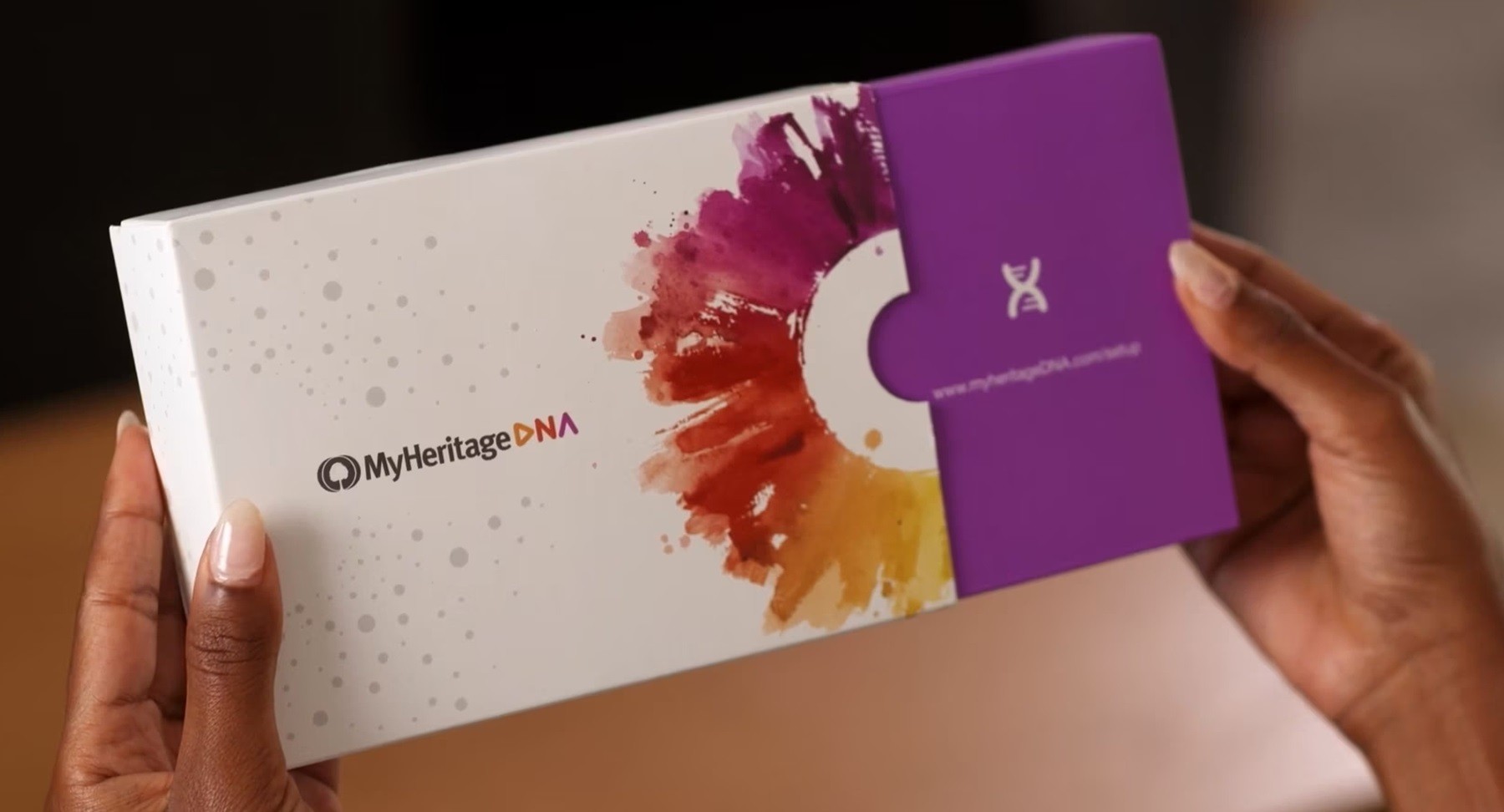
Source: MyHeritage
How does MyHeritage work?
While creating an account is free, many of the platform’s genealogy features, such as tree building, will require you to purchase a subscription. If you’re looking to test your DNA with MyHeritage, you’ll also need to:
Buy the kit
Collect two cheek swabs
Mail the samples to the lab
MyHeritage will then process your sample via genotyping analysis, identify the genetic variants or differences at specific DNA locations, and use its algorithm to compare your DNA with other users from the database.
The results are usually available within three to four weeks of the lab receiving the sample, and you can view them on the website or the mobile app.
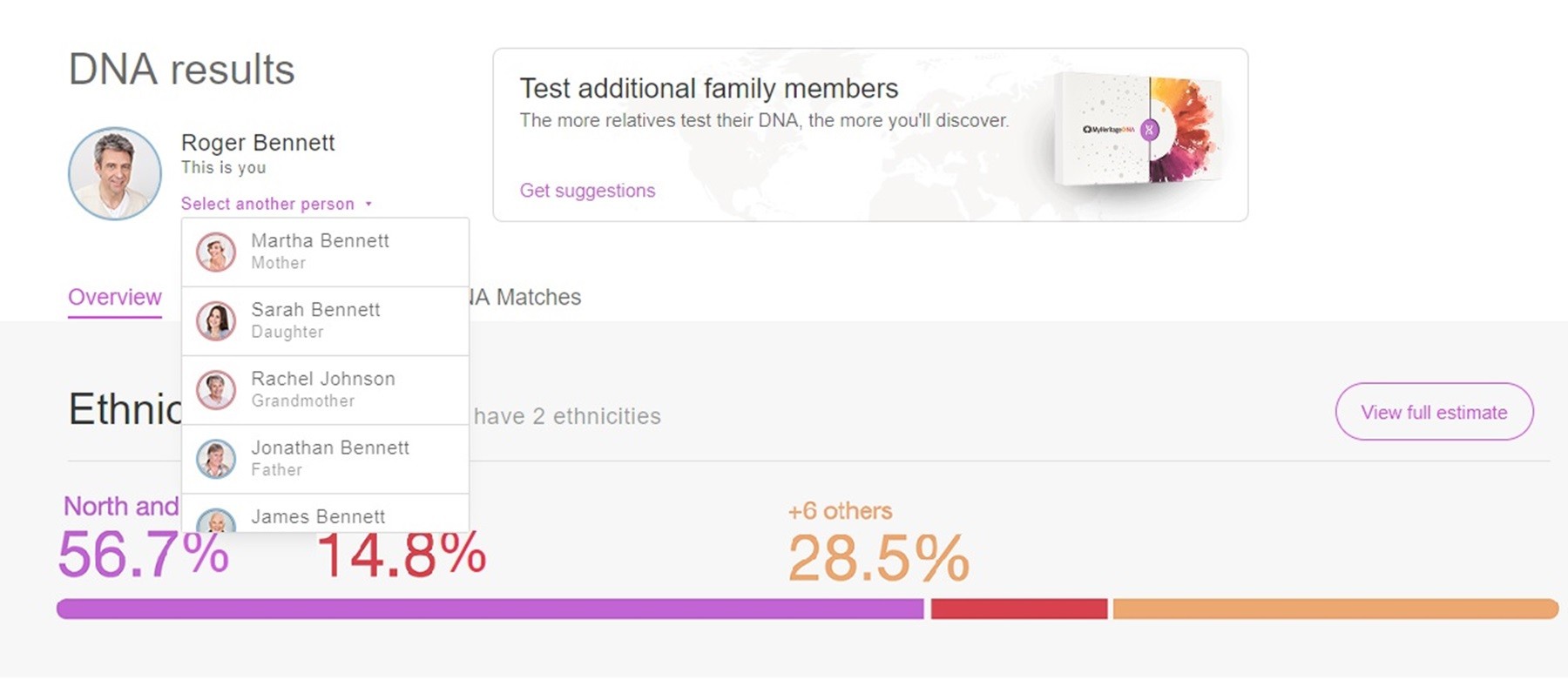
Source: MyHeritage
As of August 2024, the MyHeritage DNA test for ancestry is accessible in all countries but 10. However, the Health Upgrade is limited by additional location restrictions. For example, you won’t be able to access the service if you’re in New Jersey, Rhode Island, or New York.
Aside from regional limitations, you won’t be able to access health insights if:
You’re under 18.
You’ve had a bone marrow transplant.
You’ve received a blood transfusion or chemotherapy in the last six months.
Bonus read: Explore services similar to MyHeritage through our reviews:
A detailed review of MyHeritage: 5 factors worth considering
The upcoming sections focus on five crucial service factors:
Ancestry insights
Health reports
Pricing
Privacy and security
User reviews
Ancestry insights
Once MyHeritage extracts your genetic information, it will compare it against the genetic models of 42 ethnicities across 2,114 regions. You’ll get various information about your ancestry, including an ethnicity estimate in percentages and a list of the regions your ancestors come from.
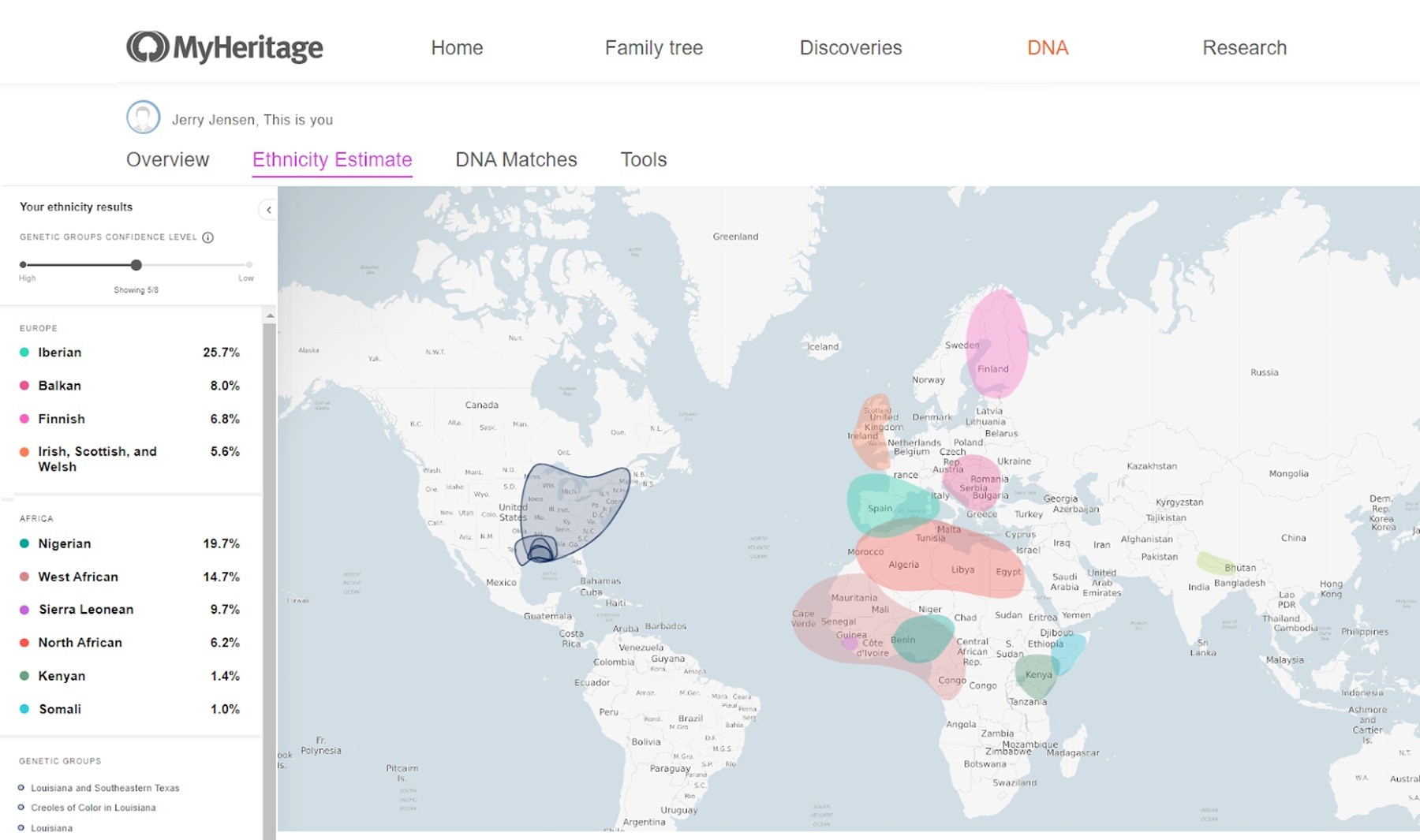
Source: MyHeritage
Still, as your ethnicity data is only an estimate, you should take it with a grain of salt.
Looking at customer reviews of MyHeritage DNA, the platform sometimes provides broad and vague information. While some misses are expected, MyHeritage seems to be less accurate than other testing services, as this reviewer states:
Since MyHeritage is highly popular in Europe and has a large European database, your results will likely be less specific and accurate if you descend from the U.S.
Health reports
If you’re eligible, you can upgrade your kit to receive genetic health reports alongside ancestry information. Among them, you’ll find reports on your risk for 27 genetic conditions, including:
Heart disease
Breast cancer
Alzheimer’s disease
Type 2 diabetes
If you’re in the U.S., a physician will review and approve each report before you receive it. In case one of the reports shows increased risk, you’ll get an email detailing how to connect with a genetic counselor, after which you’ll be able to view the results.
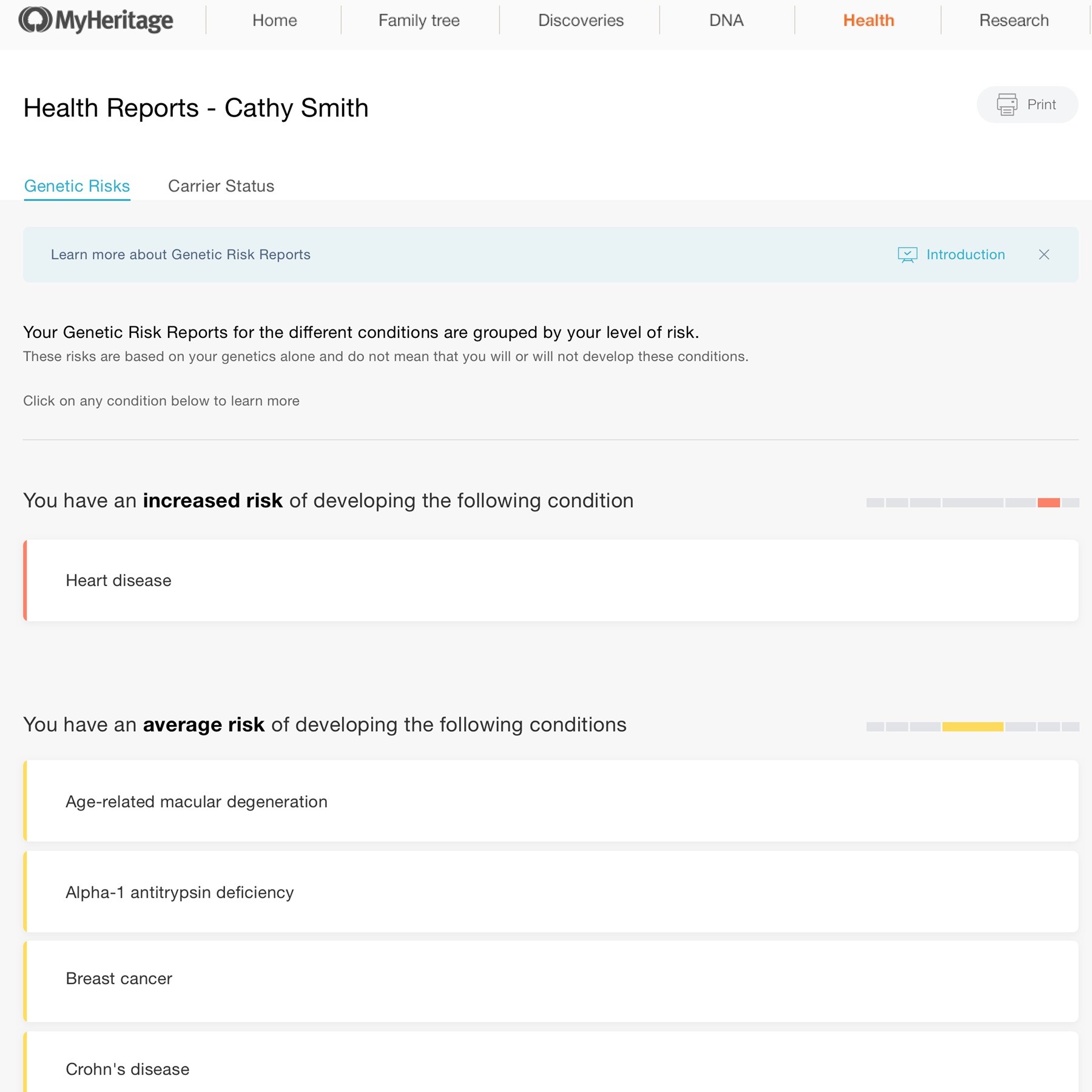
Source: MyHeritage
While MyHeritage’s health reports can be informative to a degree, they are limited due to outdated technology used to analyze your DNA.
Like Ancestry and many other DNA testing services, MyHeritage uses microarray-based autosomal DNA testing to analyze only pre-selected genetic markers associated with specific diseases. While your DNA contains over 6 billion data points, MyHeritage analyzes only around 700,000.
Because of that, it tends to overlook many variants that differentiate you from other humans, some of which may indicate an increased risk of developing a disease. As a result, MyHeritage’s reports likely won’t give you a complete picture of your risk profile.
Tip: To get a comprehensive assessment of your DNA and its effects on your health, opt for a platform that uses whole-genome sequencing technology. Nucleus, for example, offers clinical-grade testing that targets even the rarest risk variants and provides accurate and detailed reports on your genetic health.
Pricing
MyHeritage DNA kit costs $89, excluding shipping fees. Ethnicity Estimates and DNA matching are included in the price, but you need a membership to unlock the rest of the features, such as family tree building and historical records.
The good news is that MyHeritage currently offers a great deal that allows you to get free 30-day access to these features. Once the 30 days are up, the membership will cost $94 a month for the first year.
MyHeritage offers many other plans and packages:
Bonus read: Learn how other DNA platforms have priced their tests:
Privacy and security
MyHeritage processes all samples in CLIA- and CAP-certified laboratories in the U.S. and follows industry-standard measures to keep your data safe. You’re the only one who has access to your raw DNA data and results, so you can choose to delete it anytime. You can also control how other users view your profile.
Although MyHeritage seems to follow stringent security protocols today, it’s important to remember that it suffered a major data breach in October 2017. The incident resulted in the exposure of over 92 million email addresses, though the company claims they weren’t misused.
User reviews
MyHeritage holds a Better Business Bureau (BBB) accreditation with an A+ grade. Check out its user ratings on BBB and other review websites as of September 2024:
Users generally enjoy how simple MyHeritage’s DNA testing and onboarding process is — the website is clean and intuitive, and it allows for easy record-keeping compared to some other genealogy platforms. Most users found the overall service satisfactory, especially praising the responsiveness and helpfulness of customer support.
Not everyone had such a positive experience, though. Customers have mentioned problems such as:
Late results
Accidental charges after cancellation
Inaccurate and broad results
Difficulty interpreting results
The takeaway: Is MyHeritage for you?
We’ve summed up MyHeritage reviews and our findings in these pros and cons lists:
While MyHeritage can satiate your curiosity, you’ll be better off choosing another service for trustworthy health insights. The limited scope of MyHeritage’s DNA analysis method can offer only a handful of insights and may miss out on crucial observations.
Your best bet is to choose a company that specializes in health-based insights and analyzes most of your entire DNA. One of the pioneers in this area is Nucleus, which offers a whole-genome, physician-ordered test. Although easy to use, the Nucleus Premium test is thorough and results in complete self-discovery you can count on.
Nucleus: Detailed health Insights at your fingertips
With its cutting-edge whole-genome sequencing technology, Nucleus can analyze nearly 100% of your genome and target all the genetic variants, including rare ones. It then combines your genetic information with lifestyle factors and your ethnicity to provide personalized, extensive, and accurate reports.
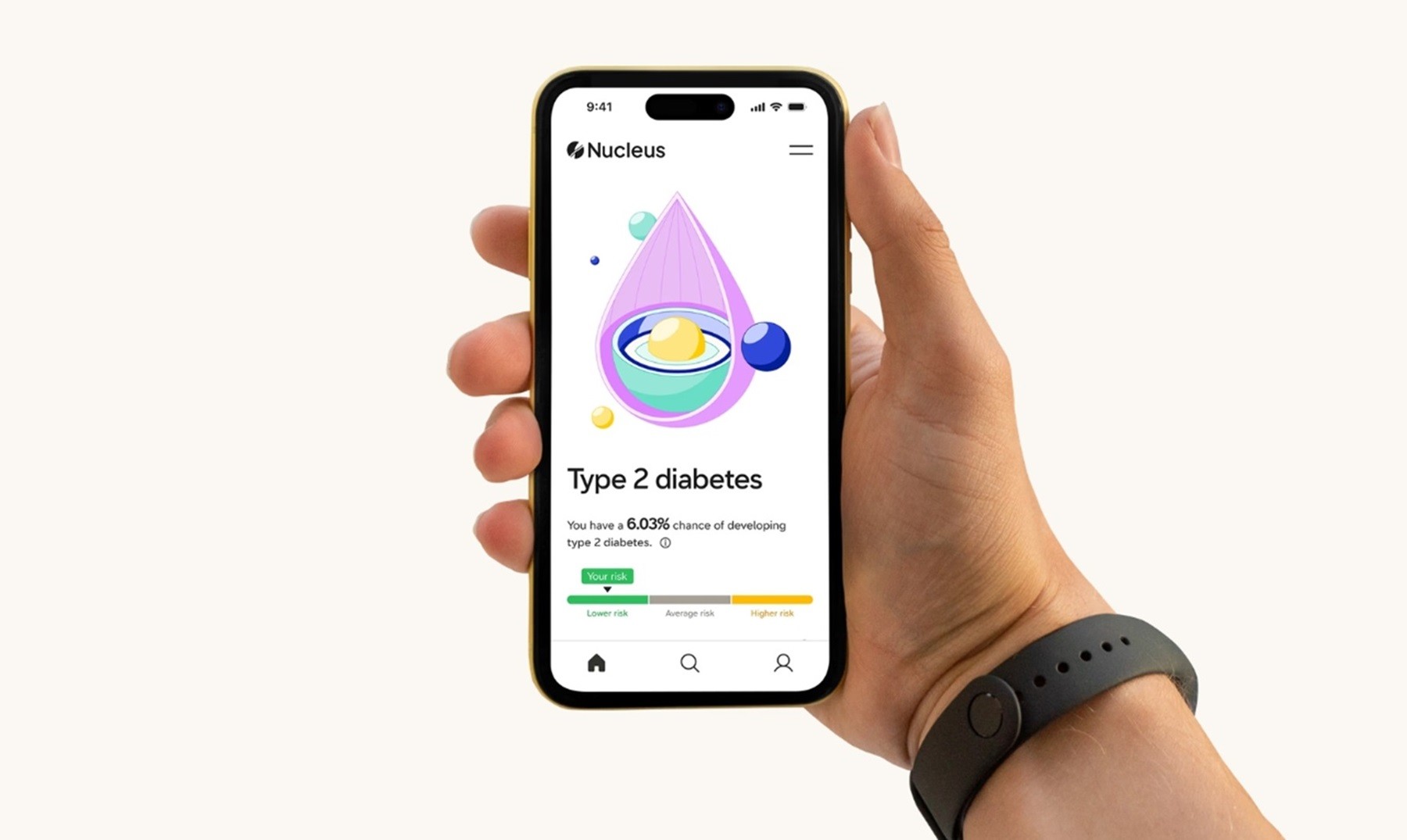
Source: Nucleus
These reports include your common genetic scores for various diseases and mental conditions, including heart disease, cancers, and schizophrenia. These will reveal the combined effect of both common variants that have low impact and rare genetic variants that significantly increase your risk of developing a condition.
You can also learn about any hereditary conditions that may exist in your family, the influence of your genes on your traits, and your genetic IQ.
To ensure quality and help you make the most of these insights, Nucleus partners with SteadyMD to offer physician-ordered tests and genetic counseling. You can connect with a genetic counselor to get additional input and guidance on the best course of action.
The company is clinical-grade and fully regulated — the processing occurs in CAP-accredited, CLIA-certified, U.S. labs that follow stringent security and quality protocols. It’s also HIPAA-compliant and employs industry-standard measures to safeguard your data.
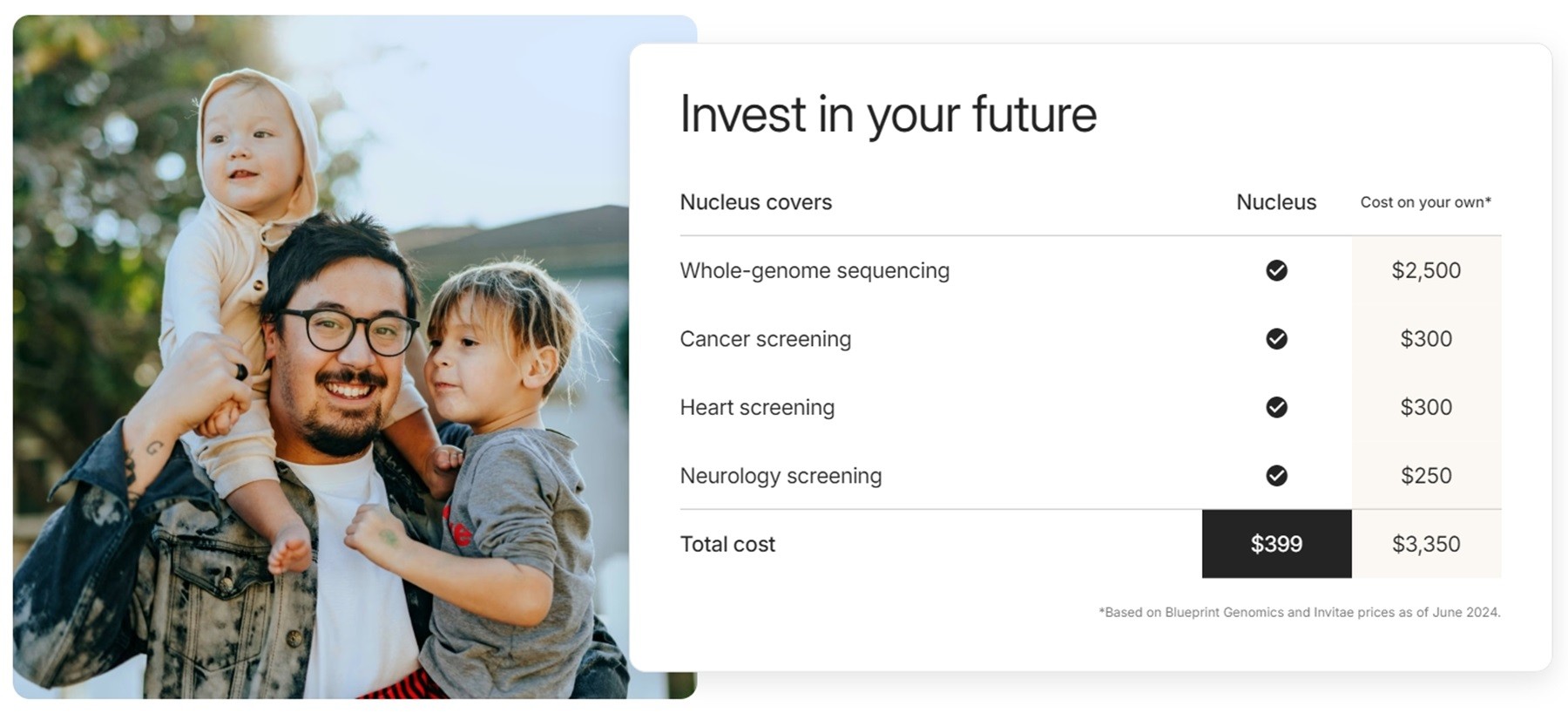
Source: Nucleus
Get to know your genetic profile with Nucleus
The Nucleus Premium DNA kit costs [PRICE.KIT_SOLO.ONE] and includes all available genetic health reports. Besides the kit and reports, you’ll get updated results in light of new research and lifestyle changes. Here’s how you can get your kit:
Fill out the necessary personal information
Order your DNA kit
To take the test, you only need to collect a cheek swab sample, which takes minutes. You’ll get your results in around four to six weeks and a notification when they’re ready.
Order Nucleus and sleep tighter knowing your DNA's full story.
You may also like…
Check out our other DNA testing service reviews and comparisons:
Featured image source: Anne Nygård












